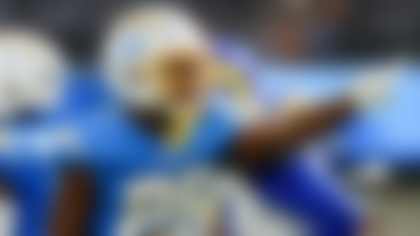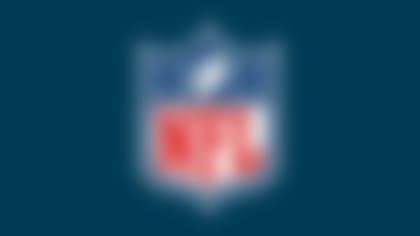The end of an era has come in Titletown.
Brett Favre, the NFL's all-time leader in passing yards and passing touchdowns, has decided to retire after an illustrious 17-year career. His departure from Green Bay has sent shockwaves through both the pro football ranks and the world of fantasy football.
One of the greatest quarterbacks to ever strap on a helmet and pads, Favre was a fantasy monster for much of his time at the NFL level. From 1994-1998, he averaged 4,054 passing yards and an impressive 37 total touchdowns. After two lean statistical seasons in 1999 and 2000, Favre bounced back and re-emerged into an elite fantasy quarterback from 2001-2004. He experienced another fall in value after two seasons with more combined interceptions than touchdowns, but he resurrected his value with 4,155 yards and 28 scores last season.
With Favre at the helm of the offense, several of the Packers offensive skill position players made tremendous strides in what was a memorable 2007 season.
Greg Jennings came out of nowhere to score a career-best 12 touchdowns, Donald Driver recorded his fourth consecutive 1,000-yard season, and Ryan Grant broke out to become one of the best runners in fantasy football. What's more, rookie receiver James Jones and tight end Donald Lee also developed into valuable assets for fantasy owners in leagues with 12-plus teams.
Now that Favre is out of the mix, the value of each of these players is in the hands of Aaron Rodgers.
Rodgers, a former first-round selection out of California, has recorded 59 pass attempts in limited work over three NFL seasons. He did show some tremendous potential against the Dallas Cowboys in Week 13, as he threw for 201 yards, rushed for another 30 yards and tossed a touchdown pass in the absence after Favre suffered a first-half injury.
However, Rodgers hurt his hamstring in the contest and didn't see another snap the remainder of the season. That was the second serious ailment Rodgers suffered when he saw significant minutes, as he also broke his foot in November 2006 in a 35-0 blowout loss to the New England Patriots. He would finish that season on the injured reserve list.
On a positive note, Rodgers has sat behind one of the greatest quarterbacks of all time for three seasons and should be more experienced than most quarterbacks with such limited time on the field. He also has a ton of talent around him on offense, which helps his draft value. Overall, Rodgers will rank on the same level as Vince Young, Jon Kitna, Jake Delhomme and Jeff Garcia and be seen as a No. 2 fantasy quarterback in most leagues. Owners should take a chance on him somewhere in the middle to late rounds.
While Favre's retirement makes Rodgers more attractive in fantasy drafts, it hurts the stock of his receivers. Jennings, Driver, Jones and Lee will all experience at least a small decrease in value without Favre, but none of them fall off the radar. In fact, Jennings will remain one of the first 20 wideouts selected in drafts.
Driver's value fell hard after a 2007 season that saw him score only twice. He's now more of a borderline No. 2 or 3 fantasy wideout rather than the solid No. 2 option he was headed into last season. The sure-handed Jones will be worth no more than a late-round selection, and Lee falls behind the likes of Owen Daniels, Greg Olsen and Heath Miller at the tight end position. The Packers will also be hard-pressed to score at the same rate under Rodgers, so even kicker Mason Crosby could see fewer opportunities to score points.
The one player whose value will remain the same is breakout back Ryan Grant, who should still be seen as a borderline No. 1 or 2 fantasy runner. The team still fields a solid offensive line, and head coach Mike McCarthy will lean on Grant to balance the offense and make life easier for Rodgers in his sudden transition from the sidelines to the top spot on the depth chart.




